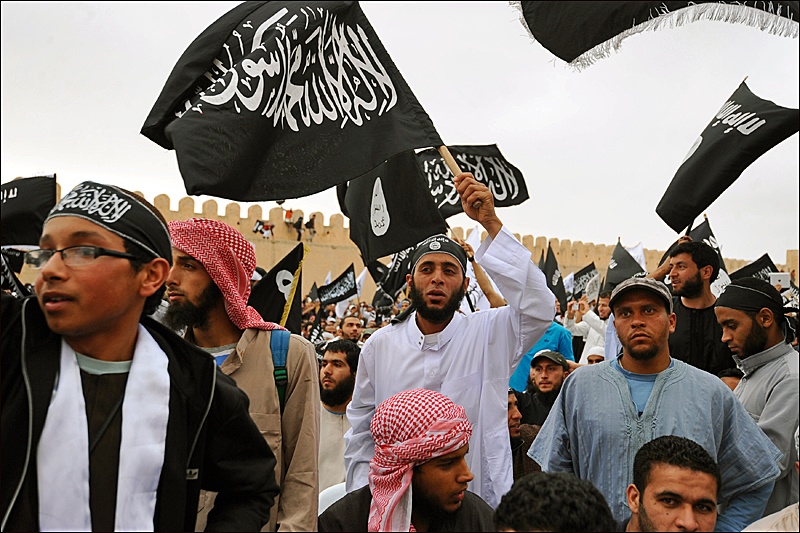ALEXANDRIA: Greenpeace s Rainbow Warrior has dropped anchor in Egypt s Mediterranean port of Alexandria to deliver an unequivocal message against nuclear programmes – civilian and military – to a region suddenly hungry for atomic power. The famous Greenpeace ship, which has sailed the world in support of the environmental group s anti-nuclear crusade, was earlier prevented from entering Iranian territorial waters and later plans to head for Israel. We were well received here, said ship captain Mike Fincken from the vessel s berth in Alexandria s western harbour. At least we were allowed to deliver our message.
Greenpeace representatives attended a conference sponsored by the Bibliotheca Alexandrina, the modern incarnation of the classical era s Alexandria Library, about creating a nuclear-free zone in the Middle East. While Greenpeace wants all nuclear programmes, military or otherwise, out of the region, it was very clear that Egypt and its neighbours have suddenly become very keen on building up their own nuclear energy projects. In September Cairo announced that it was restarting its nuclear programme, dormant since the Chernobyl disaster of 1986, and President Hosni Mubarak on Sunday maintained that it was a right for the Arabs. Egypt s announcement was shortly followed by Jordan, Libya, Saudi Arabia and other countries in the region also expressing their desire to pursue peaceful nuclear programmes. Israel, the sole country in the region assumed to have nuclear weapons, has also announced plans to build a nuclear power plant. What we have been doing here in Egypt and in the other parts of the region as well is raising the issue that nuclear (military) power and nuclear energy… are two sides of the same coin, said Greenpeace campaign coordinator Paul Horsman. It is true that there is some enthusiastic support in Egypt for recent plans to develop nuclear power, but we believe it is not a good choice for Egypt, he added. Horsman echoed the views of many regional observers who believe the sudden interest in nuclear power by the oil-rich region has less to do with a need for energy than politics and concerns over Israel and Iran s programmes. Rather than try to launch their own nuclear programmes there should be talks on how to remove them from the region, Horsman said. For the Egyptians and other Arab countries, however, the focus is on a Middle East free of nuclear weaponry rather than all things nuclear. We are totally opposed to any country in the region, Israel or otherwise, having nuclear weapons, said Aly Maher, the director of the Egyptian Institute for Peace Studies and co-organiser of the conference. The position of Egypt is truly clear — we need peaceful nuclear energy. He was echoed by Abdel Hakim Qandil, a former member of Egypt s atomic energy commission, who said the country needed to look beyond fossil fuels. Nuclear energy is safe and cheap, he said. We need other sources of energy because in 30 or 40 years we won t have either oil or gas. The electricity ministry has since proposed building a 1,000-megawatt power station at Al-Dabah on the Mediterranean coast as part of a plan for three light-water reactors. But Greenpeace s Horsman argues that nuclear power is dangerous, expensive and dirty – with extensive waste problems. Egypt has 80 times more renewable energy available that it needs, while the government has a renewable energy target of only three percent in 2010, he said. The organisation also notes that the uranium to power reactors is expensive and will also one day run out. The Greenpeace trip is its first tour of the Middle East and is aimed at the group becoming more involved in the region, especially over issues such as disarmament and the environment. On Sunday, the Rainbow Warrior will up anchor and sail for the Israeli ports of Haifa and Tel Aviv, where activists will urge officials to join the discussion over a nuclear-free Middle East.

